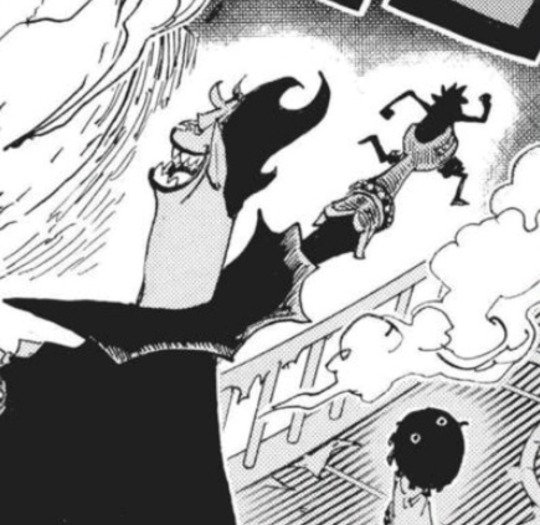#greek governments
Explore tagged Tumblr posts
Text
The Concept of Government Legitimacy in Greek Antiquity and the Modern World
An original essay of Lucas Del Rio
Note: This piece of mine references both the modern and ancient worlds. Dates in antiquity will always have BC attached. If there is no BC attached, then the date can be presumed to be AD. All references to events in the modern world are solely for the purpose of historical analysis and are not intended to support any political agenda.
In the twentieth and twenty-first centuries, a series of international conflicts, both with and without bloodshed, have arisen over the issue of the right of governments to rule their people. After the Second World War, a push occurred against colonialism, which at least in theory was because states were increasingly expected to have a right to constitutional sovereignty. Similar to Latin America in the nineteenth century, local peoples in Africa and Asia began to grow more nationalistic and demanded the right to have governments that answered to their own subjects rather than being the subjects themselves of imperial powers. This dream would be shattered, however, by the conflicting interests of the United States and the Soviet Union, who both had their own ideas of what a legitimate government meant. Now government legitimacy was no longer derived primarily from popular sovereignty, but rather from the two opposing systems of government and economic structure demanded by the rival superpowers. Consent from the people, as well as the right of a nation to rule itself, grew irrelevant as the former colonies became battlegrounds of political ideology through proxy war and coup d’etat regardless of what their citizens actually wanted. Even with the dissolution of the Soviet Union more than thirty years ago, the major powers of the world have far from ceased operating in this manner. Some countries, such as Somaliland in northern Somalia, have fully functioning governments without any international recognition of sovereignty. Others, such as the Republic of China and the People’s Republic of China, both claim the title of legitimacy over the other and both enjoy the recognition of certain other governments. Further still, some nations may try to undermine the status of another internationally, such as how the United States uses sanctions on Belarus, Cuba, Iran, North Korea, Russia, and Venezuela.
One might assume that this recent history is only characteristic of the timeframe in which it occurred. With nationalism and the notion of universal human rights both being relatively new concepts, older history was indeed frequently dominated by empires, absolutism, and slavery. The idea that there was historically no consideration of government legitimacy could not be further from the truth, however. This topic has the potential to be studied in a myriad of times and places, but consider ancient Greece. Countless city-states were strewn across the country prior to the eventual finalization of the Roman conquest after the Battle of Corinth in 146 BC, and there was a lengthy political history in each of them before this annexation. Cities had different systems of governance, conquering cities installed puppet regimes in one another, and most importantly, there were standards for political legitimacy. In order to study the beginnings of the Greek political systems that would come to dominate her cities in the Classical (490 - 323 BC) and Hellenistic (323 - 30 BC) eras, the focus of research shall be on Athens in the Archaic Era (750 - 490 BC) and earlier.
The earliest surviving Hellenic writings that tell their history in an objective manner are the “Histories” of Herodotus. After spending as long as multiple decades traveling and writing about what was the known world to the Greeks in the fifth century BC, his finished text is arguably the best extant source on Archaic Greece, although little of it extends further back than the late seventh century BC. A crucial source for events before this is the “Chronicle” of Eusebius, a fourth century Christian scholar under Emperor Justinian the Great of the Byzantine Empire. In addition to more accepted facts, some of the contents of his “Chronicle” are clearly derived from legend, although folk tales can often help to decipher the history of a people. For this reason, the “Library” of Apollodorus the Grammarian, an Athenian scholar from the second century BC, is also useful. While the work had the explicit purpose of being a handbook to the ancient Greek beliefs about their deities, demigods, and other mythical figures, there is a great deal of purported information on the rulers of cities in the so-called heroic era, which when used with caution can allow it to serve as a sort of guide to Greece before it was chronicled by Herodotus and his successors. These three texts will therefore act as the main sources on the origins of Greek political structures.
The three better studied eras of ancient Greek history are preceded by the Aegean Bronze Age, a time period stretching from the first cities being founded on the archipelagos that surround the Greek mainland to the disappearance of the Mycenaean civilization, and the Greek Dark Ages, which last until official dates for Greek history are objectively established by the Olympic Games. As a side note, while historians generally simplify the dating by calling 750 BC the dawn of the Archaic Era, the first Olympiad was in 776 BC. In the Aegean Bronze Age, truly large cities emerged first on the island of Crete before being followed by those of the Mycenaeans on the mainland. Many historians have postulated that some later Greek legends were distant recollections of events in the Mycenaean era. This theory, one which deserves much greater study than it has received, is for the most part only applied to the Trojan War, although it has the potential to be used as a starting point for the study of the dawn of Greek politics. Greek legend, like those of many other cultures, had a flood myth in which Zeus attempted to wipe out the human race over anger about child sacrifice. Since the story of the Minotaur also involves child sacrifice of a sort, it seems very likely that the Greeks at one time may have had such a ritual practice. After all, the Greek hero Theseus, son of King Aegeus, overcame great odds against King Minos of Crete, interestingly the location where civilization had arisen first, when he slew his monster that had been living on the flesh of Athenian boys and girls.
If the Greeks truly did practice child sacrifice early on, then both of these stories appear to be a moral condemnation of it. In the case of the flood, it was Lycaon, King of Arcadia in the Peloponnese according to the Latin poet Ovid, who had sacrificed a boy to Zeus. Disgusted, the King of the gods of the Greeks was said to have executed the offending monarch with lightning before receiving the assistance of Poseidon and Triton to flood the world with the heaviest rains ever seen. No one would have a more legitimate claim to kingship than the one who ruled from Olympus, and he had the right to depose a much lesser leader for an obsolete, barbaric practice. To fulfill his goal, he requested help from other members of his family with their own realms. This would be followed by the suffering of many others. While Zeus and probably also Lycaon belong solely to myth, the story could represent child sacrifice surviving as a practice in the peripheral regions of Greece until the leaders of these areas were wiped out by their stronger foes. There is also the possibility that the child sacrifice is allegorical for a different practice of one or more kings, but it still demonstrates the mindset of the Greeks at the time. Given that King Minos also sacrificed children, however, it may be more than a mere allegory.
Contemporary international relations also involve countries that are more powerful and more favorably viewed looking at weak and isolated countries as both primitive and backwards, then using this mindset to justify military or other action. Nowhere is this more apparent than in the Middle East, where the United States views Islamic countries, albeit selectively, as foes who refuse to adapt to the modern world. An especially long-running example is Iran, where the Islamic Revolution of 1979 left the country as an adversary of the United States. Iran is condemned by the United States for its theocratic system of governance, a system that the United States sees as illegitimate. More recently, they have accused the Iranians of developing nuclear weapons, which the United States views with suspicion. Of course, most people in the world would agree that theocracy is obsolete in the twenty-first century and that continued nuclear proliferation, regardless of the country obtaining the weapons, is dangerous for people everywhere, just as they would be horrified by child sacrifice. At the same time, many would disagree with the practice of heavy economic sanctions and repeated military threats, which they might view as illegitimate means of diplomacy in the twenty-first century.
The story of Theseus and the Minotaur, as previously asserted, is also essentially about child sacrifice. Unlike King Lycaon, however, it is King Minos who is the powerful ruler subjecting Athens to his will, demanding human sacrificial tribute in a manner similar to the Aztecs. Theseus in this case is playing the role of revolutionary against an old custom. As this tale involves Crete as the location of the greatest power, it is probably that it represents earlier events, when child sacrifice was the norm and still practiced by the most important kings. Here Minos, therefore, is the illegitimate ruler because of his oppressive actions which unjustly interfere in the affairs of another sovereign state. In a twist, Theseus was said by the Athenians to have initiated upon his return the most important political development in Greek history, and arguably, if there is any truth to it, the world. Plutarch, in his work “Parallel Lives” about the greatest of the Greeks and Romans, writes “he promised government without a king” where “he should only be commander in war and guardian of the laws, while in all else everyone should be on an equal footing.” This, according to Plutarch, was “a democracy.”
There is one last notable development to this story, however, and it is that at least some of the Greeks telling it did not view this decision by Theseus favorably, including Plutarch. “He saw that a large part of the people were corrupted” writes Plutarch, who also adds that they “wished to be cajoled into service instead of doing silently what they were told to do.” For many Greeks, the democracy that had been won by the Athenian hero after he freed the city from Cretan subjugation was not the most legitimate system of government, as much of the international community would agree today, but rather the least. Even in the twenty-first century, this story has great relevance. Some highly autocratic leaders, especially in Africa, still try to discredit the concept of democracy by pointing to the failures of democracies that are otherwise similar to their own states by pointing out the failure of these governments to bring down corruption, crime, disorder, poverty, and reliance on foreign powers. The Latin American strongmen, juntas, and one-party states in countries such as Chile, Argentina, and Mexico used similar arguments in the nineteenth and twentieth centuries, and some would argue that the region has grown significantly more authoritarian in the last decade or so. Furthermore, like Theseus, leaders in modernity who attempt to initiate change by fighting imperial powers and establishing radical new systems of government are rarely successful. Communism is the most well-known example, although a similar issue can be seen in the African anticolonial revolutionaries of the 1960s, where newly democracy almost immediately collapsed in nearly every newly independent state and is yet to return to many. Unfortunately, both the terms “communist state” and “African state” have become heavily associated with tyranny, whether the generalization is fair or not.
Plutarch may provide a lengthy biography of Theseus, although Apollodorus discusses several other legendary Athenian kings, and Eusebius gives a simple yet thorough chronology. Apollodorus maintains that the different gods built cities that would be their respective site of worship, and the one built by Athena was Athens. Ogygus, according to Eusebius, was their first king, then “the Greeks relate that their great ancient flood happened in his reign” and “Attica remained without a king for 190 years.” There is no evidence, of course, that such a flood genuinely occurred, although the unknown event that mysteriously led to the crumbling of the Mycenaean civilization at the dawn of the Greek Dark Ages likely left governance in some parts of Greece in a state of limbo. It is therefore not unthinkable that central control in Athens could have broken down for almost two centuries, possibly with a multitude of warring factions all claiming the title of legitimate ruler while decrying the others as tyrants. “Tyrant” was a frequently used word in ancient Greece for a usurper of the government of a polis, especially one previously controlled by a “rightful” royal family and particularly in the Archaic Era. Its roots originate with the Lydian people of Asia Minor, whom Herodotus says were ruled by a dynasty descended from the Greek hero Heracles, better known today by his Latinized name Hercules, until they were overthrown by Gyges of the Mermnad dynasty. Using lengths of reign and other chronological dates provided by the celebrated Ionian historian, modern scholars have calculated the date of this seizure of power to have been 716 BC, or early in the Archaic Era of the neighboring land of the Greeks.
When the legitimacy of a regime is questioned in the modern world, the result can be the collapse of the central government. Oftentimes a military government ends up replacing a civilian one, or worse yet, central authority completely collapses into an ungovernable warlord state. Two Arab countries in North Africa are recent examples of the two situations. In 2011, the longtime dictators Hosni Mubarak of Egypt, in power since 1981, and Muammar al-Qaddafi of Libya, in power since 1969, were both expelled from power after mass demonstrations erupted into widespread street violence. Both leaders suddenly received condemnation from the international community, with Mubarak choosing to step down while Qaddafi was killed after risking a civil war that he lost. Egypt was celebrated for holding her first free and fair elections, but there was once again anger from both world leaders and the local population with the newly elected Mohamed Morsi, a member of the Muslim Brotherhood. A coup d’etat followed in 2013 with a minimum of international condemnation, Morsi would die under suspicious circumstances in 2019, and the country is now led by Abdel Fattah al-Sisi, the military officer who deposed him. A far more dire situation has occurred in Libya, which quickly descended into a civil war with various opposing factions backed by several different foreign countries, including some of her African neighbors as well as the great powers of the world.
Tyranny was exceptionally common in the Greek Archaic Era before a transition towards more democracies and aristocracies as the Classical Era dawned. Herodotus writes heavily about the different tyrants, as his successor Thucydides does to a lesser extent. The author of the “History of the Peloponnesian War,” which chronicled the catastrophic violence between Athens and Sparta in the late fifth century BC, Thucydides is generally considered to have been the greatest historian of the Classical Era after Herodotus. Some modern scholars even prefer Thucydides as a writer because they feel his approach is less biased and that he more carefully vetted his sources. He writes that “the old form of government was hereditary monarchy with established rights and limitations” until “tyrannies were established in nearly all the cities.” Clearly Thucydides considers monarchy to be a more legitimate form of government. Today, military seizures of power are at the very least internationally condemned and often met with economic sanctions such as embargoes and asset freezes, showing that unconstitutional rule by juntas is now no longer seen as legitimate as it was during the Cold War and earlier. On the other hand, while the official international consensus is supposed to be that absolute monarchy is obsolete, powerful countries such as the United States continue to work closely with hereditary regimes such as Saudi Arabia. One reason given for the illegitimacy of military government is the squandering of economic resources, a sentiment shared by Thucydides when he says “for a long long the state of affairs everywhere in Hellas was such that nothing very remarkable could be done” and “cities were lacking in enterprise.”
According to Eusebius, following the reestablishment of monarchy in Athens by King Cecrops, who is also mentioned in the myths told by Apollodorus, the city was ruled by a series of seventeen kings. These kings, he says, belonged to the Erechtheid dynasty, who reigned for 450 years. As Athens transitioned from monarchy, the heads of government were the archons. The reason for this abandonment of monarchy by the Athenians is unclear, but there must have been forces in the city causing a different political system to be considered a more legitimate form of rule. Initially, the archons held power for life, and then his dates show that after 763 BC they began to be appointed for ten year terms. After 684 BC, these terms changed to one year. Just like in Athens, countries in the modern world grapple with the legitimacy of individual leaders based on the duration in which they are permitted to remain in power. Especially in the more peripheral states of the world, changes are frequently made to national constitutions regarding term limits and the length of individual terms. Herodotus mentions a series of tyrannies and attempted tyrannies in Athens that occurred prior to the democratic reforms that historians believe occurred in 508 BC.
A pivotal moment occurred in Greece, which foreshadowed a major aspect of modern geopolitics, as the Archaic Era was coming to a close. This was the first and second Persian invasion of Greece, which caused something to occur in the world that had never happened before. In these wars, the greatest imperial power of the world chose to use its massive army against a people who, more than had happened up until this point in history, were starting to develop a national identity. The Greeks did not wish to be subjects of the Persians. To the Greeks, despite their many scattered governments, only Greek rule over Greece was legitimate, and they therefore showed unity and strength to defend their sovereignty. During the eighteenth century, such a notion of nationalism spread across the globe. Throughout the nineteenth and twentieth centuries, it became commonplace for nationalist partisans to resist instances of foreign occupation. Since the Second World War, direct occupation of a different nation-state has grown increasingly difficult, as evidenced by the local responses in Afghanistan in 1979, Iraq in 2003, and Ukraine in 2022. Like the Greeks of the fifth century BC, the people of the modern world are increasingly valuing both democracy and their own sovereignty, and like the Classical Greeks, they have the potential for some of the greatest deeds in human history.
#history#ancient history#ancient greece#historical writing#historical analysis#greece#greek governments#geopolitics#international relations#political theory
8 notes
·
View notes
Text
I live in a country that just banned an entire app because they didn’t like what was said on it and how people connected. But, please, continue to tell me how we live in the freest country, and how I shouldn’t be worried as a queer person about my rights getting taken away, when they just violated one of the base principals of free speech?
#fuck the us government#hate being Cassandra from Greek mythology#TikTok ban#how many times do I have to say somethings going to happen and it does will it take for you to believe me#shit I want to scream from the rooftops
23 notes
·
View notes
Text

The Ashes of Phocion - Nicolas Poussin
“One of the great love stories of antiquity. How Phocion, the Athenian general, was unjustly condemned to death, and worse than death because they burnt him and scattered his ashes which meant his spirit never could rest. So his wife came secretly, scooped up his ashes (here you see her in the foreground) then she put them in a bowl, put in water, and swallowed them so that he would have a tomb. She would be his living tomb. Notice how afraid her companion is, terrified they’re going to be caught and punished. The whole picture displays to us the great might of authority. All these great stately buildings so splendid, so strong, so upright, so perpendicular, so full of masculine power. They represent the rule of law which doesn't take much account of the human heart. And in the background the world goes on unchanged and unheeding. It’s a moving and poignant portrayal of the eternal conflict between the individual and the state, between the human heart seeking what is right and the great authoritarian power of the government imposing law.” - Sister Wendy Beckett (TV special)
#art#greek mythology#mythology and folklore#luigi mangione#2025#art history#history#love#love story#art interpretation#nature#human rights#government#art museum#landscape
19 notes
·
View notes
Text
CAUSE THIS IS THRILLER (bark), THRILLER (bark) NIGHT

Usopp's outfit is so funny for reals

He got the whole squad laughing

Luffy enablers at it again.... (Robin.... I know.....)

The humor panels so far have been so good!!! God this arc is so funny

HE SAID IT‼️‼️

They look like birds 😭😭

It's just too good... luffy taking cerberus and zombies what can't he do

It's just banger after banger what can I say

Franky feeling for other people because of his guilt complex and sanji lying through his teeth and pulling out the women excuse to seem unaffected... yeah

Look at them.... look how they ate

Omg joyboy reference?? (No)

Sanji is rubbing off on usopp.... also chopper noticing that is sogeking's weapon akdhaksjak

ANOTHER SLAY!!!!!

Their priorities: I'm not strong enough, there isn't enough food, and nami isn't here



Franky going from wanting to kill brook for his jokes to making a joke like his after he hears his backstory... exactly (Robin was already enabling him before the backstory even fdagjsfha)

Sanji is altering his body and actually being on fire to communicate to us how fucking mad he is..... I need more of him going insane I do I do

My god what is he doing ALDJALAJALA

AHSAHAHQHAH THEY ARE THE SAME!!! naaah sanji wouldn't force a woman to be his wife

You cant see me but I am nodding my head in agreement over and over


You don't understand he altered his body to communicate to us how mad he is. He inploded himself and then reconstituted again. Those germa 66 genes are insane

You tell em usopp!!!! The first of many girls you've scared into defeat!!! Akdjqknql

Zoro zombie regressed to not trusting robin akdjaks he's still in there

ROBI-CHO SUPLEX??? HELL YEAAAAAH

There is zosa- [GUNSHOT GUNSHOT GUNSHOT GUNSHOT]

Super frapper gong.... he is doing combo shots with frobin... omg.... parents....
Everything is so fun I'm having such a good time reading.... and then zosan angst like damn I am being fed well here
#in the anime the guys didn't say they wanted to die aldjlajala for the kids luffy just wants to turn into a clam#thriller bark is so funny.... 'worst arc' my ass.... it's funny as hell and then we get zosan angst. best thing ever#same with skypiea but there we got really nice relationships betwen characters and nolan x calgara homoeroticism for the ages#and LORE for the ages. not like the kuma incident won't be talked about in the history books but yeah#everyone calling absalom perv salom... yeah#sanji in that fucking penguin never gets old.... also HELLO LOLA#moira fought against kaido and lost akdjsksnks is that why he became a warlord? just like whitebeard defeated crocodile?? out of spite??#also what is the land of ice where moira got oars? he also mentioned it before too... i thot he was referring to ryuma so it was wano but n#the legend of the continent puller who built a nation of villains.... okay okay oars....#oars was killed 500 years ago.... ✍️✍️ this somehow feels important bc of its closeness to the void century etc#zombie luffy oars wanting sanjis food.... 🚬🚬🚬 of course.....#oars luffy maintaining his dream... yeah yeah. also namis outfits for this arc are so sickening.... i miss them already#the zombie generals being at absalom's wedding... thats so funny..#luffy oars is so funny aldjslsn just making himself a hat and steering his giant ship... of course#you guys think they are going to make sanji mad about the clear clear fruit in the opla or completely ignore it bc his reasoning is bad#like it makes sense with the wci backstory it does but that would be spoilers lmao. so its either he wants to peep on women or nothing#i love the greek chorus of the two zombies telling the audience how they are both as bad in that regard. amazing#did ryuma use french for his attack.... there is zosan everywhere for tho-[GUNSHOTS]#zombie ryuma's design is also cool as hell.... his blood is literally fire.... come on now....#also zoro says he wants to act like this fight didnt happen... is that why he says fuck all in wano to hiyori? damn. he said i put shame#in you and your country but i will keep it quiet bc you gave me a cool sword and fight and i am actually so honorable. thats him yeah...#zombie zoro and sanji remaining tfait being that they hate (love fighting) each other... there is zosa-[GUNSHOT GUNSHOT GUNSHOT]#i forgot how much oars destroyed them... after enies lobby they seem untouchable but without their captain there... the gears are turning..#also btw i cannot believe im gonna get an answer about why the skypieans and the shandians have wings. thats insane#i am enjoying luffy oars so much it is so fun. trying to enjoy it bc i know i won't be laughing anymore once sabaody kicks in.... fuck me..#usopp and franky wanting to wait for luffy to beat oars down but zoro and sanji know... and they will KNOW soon enough....#i forgor kuma asked about ace to nami... what is going on. kuma coming from the warlord meeting too.... did he want to warn him??#he wanted to inform moria about balckbeard becoming a warlord omg here we go.... also moria being racist towards kuma hello???#and he strictly follows the government.... until here bc he lets luffy go.... christ.... he asks about ace bc he knew what blackbeard did..#reading one piece
19 notes
·
View notes
Text

I am a man with a regular sense of humour (nuh uh I was laughing the entire time I was drawing this)
Lodi Moros and Damascus Parastin belong to @freezinglemur btw
#my artwork#artists on tumblr#art#others ocs#shitpost#doodle#ok name analysis time because I find this pretty fun (I used to do this for madoka magica ok?)#couldn't find much for lodi besides his last name. which could be after the personification of impending doom (fitting imo)#but honestly i first assumed that it was after the greek word for baby which also means idiot and is also the root word for moron#damascus is pretty obvious to those familar with knives (damascus steel)#but I first thought it was after THE CITY HAHAAHA#parastin didn't bring up much besides a type of painkillers and an iraqi government agency. but it does mean to “to protect” in#northern kurdish. kinda fitting as he ran away to protect himself (i am overanalyzing I SWEAR IM NORMAL)#ok name analysis over#imo Lodi and Rind would get along pretty well (Pre-death Rind to be exact). Like I think if they teamed up they'd be a menace to society LO
17 notes
·
View notes
Text
Amanda... I miss her.
But I don't trust a single person to write her other than Ostrander/Yale. Like I don't trust them to do it right. Because like it's easy to write her being shady and manipulative and involved in secret government conspiracies. That's what she does. But it feels so hollow once you've seen her character in the way Ostrander describes it. Like she is a woman who is desperate and trying to do what she thinks is right. She has found a place of power (as a fat Black woman in the 1980s) and is doing anything she can to fight and hold onto it as powerful and ambitious men try and steal it from her. So she doubles down. She doubles down on the shady deals and the broken promises and the violence and she destroys her enemies, and loses a part of her soul in the process. And then some other ambitious politician rises up and the process repeats itself over and over and over again as each time she loses more of her morality and more of her soul and more of the respect her colleagues had for her. In place of that she gains more power, she gains fear, and an even more badass reputation. Until by the end of the book the villains begin to understand/sympathize with her more than the heroes ever will. Like THAT is who Amanda Waller is. It may happen subtly, it may happen over a longer period of time but that descent is a critical part of her character! She is a tragic character! And I feel like every perception of Suicide Squad I've seen outside of the original has her as this static villainous snapshot which is just untrue to her core imo. Like she is not a hero. But she is also not JUST a villain. She is a highly flawed character who is always descending farther and farther into villainy as she is led there by what she believes is right.
#maybe the problem is there isnt as much of a side cast in the later suicide squads from what ive seen.#bc the reactions of the government workers and prison workers are CRITICAL in this#also like. suicide squad isn't all villains guys. its a mix of prisoners and government workers with various moralities who can all general#ly join together in one thing: hating amanda waller#GOD I-#so many feelings abt her#also like lemme know if people think shes actually done okay in non 80s comics bc from what ive seen and the vibe it gets it seems bad#maybe i should go back to the 80s i probably missed some appearances there#but 80s plots are so annoying though 99% of the time its either new gods space shenanigans but weirder or visits to a made up country#obviously based on real ones which are then used for cold war propaganda#hgggggg#but like you can tell so easy when ppl dont get her. bc theyre all like amanda waller (derogatory) when REALLY its waller (derogatory)#(affectionate) (derogatory). at times with another affectionate or derogatory (or repeat of both) thrown in at the end#amanda waller#suicide squad#the suicide squad#dc meta#dc comics#blah#she gets painted as this 2 dimensional villain when to me shes literally like the hero of a greek tragedy#tonight is an amanda waller thoughts kind of night ig
77 notes
·
View notes
Text
just officially got my masters offer!!
#but why the fuck do i need to take a latin language exam for my greek archaeology mphil#also why do they think i need £14k maintenance when the government thinks i need 9k maintenance for undergrad#like girlie i'm not planning to be liable for £28k when i spend like £7k a year including rent
31 notes
·
View notes
Text
The disrespect this show gets on a daily basis, from the production to the network(s) to even the pirates who prefer to rip shows like *checks notes* Big Brother Canada (same group)...
I wouldn't be calling them out if I hadn't done this myself, by the way. People who have never ripped a damn thing can stay in their lane. I have earned my stripes, I'm not someone who wants to talk shit about those who do this, and I understand the process involved. The webrips are a different story, as they are uploaded by Amazon whenever. The HDTV rips should be uploaded on time, shortly after the network airs the show, and it's the same process as it always has been to rip them. Uploading HDTV rips after the webrips has no value whatsoever, unless someone cares that much about the promo, which of course CityTV doesn't care enough to upload themselves, proving once again what a shitty network they are.
Hudson and Rex has an international fanbase, it shouldn't be so difficult to be able to watch it as an international fan in 2024.
#hudson and rex#this is now a whining blog#but what else can it be when nothing about this show is working as intended#I've been torrenting since 2005#I've never had the misfortune of having to wait as long as I wait for this show through all these years#last season it took them three days to upload the season five premiere hdtv rip#the rip times are unbelievably inconsistent and they have been that way since this saw first caught my eye (season two)#the fact that there is a single group that does the hdtv rips means that if for whatever reason they can't upload it then we don't have it#the webrips are actually being ripped by one of the best groups out there so I can't complain#it's just that the streaming upload by amazon happens whenever they feel like it#once again I'm drawing similarities between canadian and greek programming which is so not in their favor#(I actually thought that by the time I'd finished writing this we'd have something but nope)#(ps I just saw a rip announce of family feud canada and I just... does someone actually hate hudson and rex?)#(pps do not respond to this if you live in a country where your government is actively combating piracy)
23 notes
·
View notes
Note
On that trojan war au thing you're writing. 1. What are the tags for it, cause I'm super interested! And would love to read what you have so far! 2. "And Odysseus is a much grimmer darker man due to his home being one of the places that were first swallowed up by Erebus" - I wanna know more about this. Please tell me more.
Oh , wow, I'm so flattered! I'm very happy it sounds appealing to you <33 This work is a huge passion project of mine so I'm always glad to talk more and more about it, especially since there are many aspects occurring in the background (such as the alternate fates of the main players of the Trojan Conflict) which I cannot properly cover or even explain within the events of the novel itself.
That said: 1) If you mean tags as in ao3 - unfortunately, this work isn't on ao3 my friend :( As I said above, these are elements and concepts in the greek mythology based-fantasy novel I'm currently writing (the concept of which I outlined here in the introductory post of my novel concept!) As for wanting to read whatever writing I currently have available: I currently have three fics available on ao3 that are written in my Pursuing Daybreak verse!
The Prince and Princess series deal with a young Apollo and Artemis and the many consequences they face after Apollo has slain Python. The two works uploaded right now are Exeunt Phoebus Apollo which covers the murder trial of Python and Manent Apanchomene Artemis which covers the intense feelings of helplessness and alienation Artemis experiences after Apollo returns from his banishment and is completely changed. Both of these have themes of family, grief and relationship exploration at their heart.
The third bit of writing I have up is quite outdated but does cover the immediate aftermath of Hyacinthus' death. It's called A Petal Falleth and features Apollo making one of those Big Silly Decisions that have completely unintended but extremely important consequences: namely, instead of the larkspurs being made of Hyacinthus' spilt blood, Apollo anchors the boy's soul to the flowers so Thanatos wouldn't take him. Like the Dawn is also set in this world but because it is nsfw in nature, I wouldn't recommend it as easily as the other three bits of writing. If you don't mind the whole naked men thing though, I'd definitely suggest reading Like the Dawn for a better idea of what my current writing is like (along with eventually getting to see characters like Hector, Andromache and Cassandra/Helenus) Like the Dawn's themes are also different to the other three works with it focusing more on the power dynamics of a god/mortal relationship, exploring masculinity and masculine sexuality and self discovery.
The running theme here, of course, is that all of these bits of writing are centered on Apollo/Artemis or Hyacinth because my novel itself is centered around them. There are, of course, other important characters and figures like Eros, Psyche, Penthesilea and Iaso (one of Asclepius' daughters) but while there is the definite presence of characters from the Trojan War they most certainly aren't at the center of the novel (and the ones that are aren't the Greeks but rather the Trojans i.e Hector, Alexander, Andromache, Cassandra, Helenus, Aeneas, so on and so forth.)
2) The basis of the apocalypse in my work is cosmological! Due to Apollo's err-- untimely departure, there's no longer anyone maintaining the axis of the heavens or the navel of the earth. Because of this, Erebus - whose darkness is usually kept firmly in the spaces between the realms - begins to spill out into both the heavens and the earth. The beasts of Erebus (referring primarily to the Seven Curses - Old Age, Misery, Deceit, Violence etc etc) consume, torment and destroy whatever is inside of Erebus' darkness and Ithaca, as one of the islands on the far edge of the world, was one of the very first places that were devoured in this manner. Odysseus was visiting the Argives at the time for a festival and had left the pregnant Penelope at home since he didn't want her to suffer through the voyage in discomfort. He only finds out about the destruction of Ithaca after it had already been consumed when Athena personally interrupts a feast to warn both him and Diomedes. Needless to say, Odysseus, like everyone else, assumes that everyone on Ithaca has died and thusly is a very, very different man in terms of humour and comport. A part of him still stubbornly clings to the belief that Penelope managed to escape - that she was smart and resourceful enough to see the end approaching and do her best to escape - but that doesn't stop him from being dour for the majority of the time. Diomedes does his best to keep his spirits up in the meantime. Without him around, Odysseus is something of a black hole when it comes to the oppressiveness of his discontent though he does manage to lighten up when in the company of Helen, Clytemnestra and even Menelaus on occasion.
#ginger answers asks#ginger chats about greek myths#Diomedes did a lot to coax Odysseus out of his initial shock when Athena delivered the news#Pretty much the only thing that stuck was Ody getting into the habit of whittling wooden horses and ships#He used to speak to Penelope's stomach and tell a bunch of stories about his youth and adventures#Now he speaks to himself while he's whittling because it makes him feel like he's still speaking to Telemachus#Ody doesn't grieve Penelope at all btw He refuses to behave like she's dead until the gods personally tell him or he sees a body#DIomedes very much thinks it's unhealthy and is very worried for his bestie but he's very deliberately left that topic for Helen#and Clytemnestra to deal with. Like he punches things he can't really do that for Ody's mental health alas#pursuing daybreak posting#The Seven Curses all have names btw#And Erebus isn't really doing anything malevolently either#The gods carved the world sky and ocean out of the darkness - it's their responsibility to maintain it#Of course Nyx and Himera originally held the job of keeping Erebus' darkness at bay#But that power is one that's been broken up and passed down between the generations to prevent precisely this event from happening#Nyx's Night and Himera's Day was first given to Ouranos so he could govern the boundary between the world and the darkness without fail#Ouranos' daughters received Night - specifically Theia and Phoebe#and his sons received Day - namely Hyperion and Coeus#Apollo - ever the overachiever however - ends up being overwhelmingly endowed with these attributes and then some considering#he also gets Delphi - the center of the earth - when he slays Python#So when he errr left to get some milk so to speak - the entire order of things went with him#The remaining balance-keepers are Hecate and Artemis and both of them are Night which is too close to Erebus anyway#So y'know things aren't good like at all LMFAO#Anyway I talked a lot - thank you very much again for asking!! If you have any more questions let me know :D#ginger rambles#odysseus#apollo#erebus#diomedes#greek mythology
11 notes
·
View notes
Text
So long as we assume (as most people did) that composing poetry and quoting classical literature are the best guides to administrative talent, China can fairly be said to have developed the most rational selection processes for state service known to history.*
*When Britain reorganized its civil service in the 1880s it introduced self-consciously similar examinations, testing bright young men on their knowledge of Greek and Latin classics before sending them off to govern India, and even now British civil servants are still known as mandarins. Nineteenth-century conservatives saw exams as part of a sinister plot to "Chinesify" Britain.
"Why the West Rules – For Now: The patterns of history and what they reveal about the future" - Ian Morris
#book quotes#why the west rules – for now#ian morris#nonfiction#poetry#classical literature#administration#china#selection process#state service#government jobs#civil service#civil services examination#exams#civil servants#britain#reorganization#80s#1880s#19th century#greek classics#latin classics#india#mandarins#conservatives#conspiracy theories#sinister plot#chinese history
14 notes
·
View notes
Text
8 notes
·
View notes
Text

17,000 tourists arrived today with cruise ships in Santorini, a small Greek island. Santorini's total population is 17,000 citizens. Overtourism is real and it's scary.
#tourists#tourist#tourism#overtourism#santorini#greek islands#greece#athens#ausgov#politas#auspol#tasgov#taspol#australia#fuck neoliberals#neoliberal capitalism#anthony albanese#albanese government
9 notes
·
View notes
Text
OH Y'ALL ABOUT TO BE VERY AWARE 😂😂😂
#THANK YOU to my dad for abruptly and wordlessly removing me from his insurance#and THANK YOU to the Greek government for making it impossible for me to fix it in less than 2 months#see you on the other side 🫶#Nataly vents
4 notes
·
View notes
Note
Quintus Smyrnaeus, Fall of Troy 14. 386 ff :
Still from Olympos thundering Atrytone [Athena] wielded her Father's power unshamed, and still the welkin shrieked around. Her ruin of wrath now upon Aias hurled she: on his ship dashed she a thunderbolt, and shivered it wide in a moment into fragments small, while earth and air yelled o'er the wreck, and whirled and plunged and fell the whole sea down thereon. They in the ship were all together flung forth: all about them swept the giant waves, round them leapt lightnings flaming through the dark. Choked with the strangling surf of hissing brine, gasping out life, they drifted o'er the sea.
But even in death those captive [Trojan] maids rejoiced, as some ill-starred ones, clasping to their breasts their babes, sank in the sea; some flung their arms round Danaans' horror-stricken heads, and dragged these down with them, so rendering to their foes requital for foul outrage down to them. And from on high the haughty Tritogeneia [Athena] Looked down on all this, and her heart was glad.
Ok, so much to unpack here, first off, good for the Trojan women to get their revenge, it reminds me of something Anya Taylor-Joy had said:

Second off, I always found it so interesting how Athena felt remorse for destroying Troy, it doesn’t make up for the horrible things she’s done and allowed but it’s so cool nonetheless. The fact that she’s glad that the Trojan women dragged the danaans down with them is also interesting, bc it’s one of the many examples that Athena can be violent and love violence, sure she’s more levelheaded than Ares (tho tbf a feral cat is more levelheaded than Ares) but she can still be just as bloodthirsty as him, except unlike him, she actually wins her battles.
#I remember a comic that was explaining that Ares was better than Athena#bc he was the more approachable god and she only helps heroes that catch her eye#or something like that#that Ares is for the little guy and Athena is for the government and monarchy#even tho he was called the patron of police forces and they were called the ‘officers of Ares’#and oversimplification of both their characters and what they meant to the ancient Greeks#greek mythology#ancient greek mythology#greek pantheon#greek goddess#Greek god#Athena#athena greek mythology#athena goddess of wisdom#athena goddess#ares#ares greek god#ares god of war
12 notes
·
View notes
Text
Hi guys guess who's angry over tourism again
#Greece's economy depends on tourism but I actually just fucking hate it so so so fucking much lmfao#Greece is fucking struggling so much and tourists literally take away resources that ACTUAL CITIZENS NEED#GREEK CITIZENS GOT TOLD TO USE LESS FUCKING WATER SO TOURISTS COULD HAVE IT#WHILE GREECE IS FUCKING BURNING TO THE GROUND AND THERES CONSTANT RIOTS BC OF THE CORRUPT GOVERNMENT TOURISTS GET TO TURN A BLIND EYE#⛪️
5 notes
·
View notes
Text
It feels so weird to see people from the whole world talk about the tragic situation that happened in Greece a couple months ago, where a ship carrying migrants and refugees capsized and the EU refused to go on a search. But this isn't the only time this has happened. The Greek government has been treating asylum seekers and migrants like absolute SHIT for ages. Our authories are non-stop violent to them, and continue to push migrants back to the Turkish border, many of them have absolutely nowhere to go. Children are missing school out of hunger. Our intelligent service has spied on journalists that report conditions at the border. This is inhuman. Months may have passed but our government won't change. And I want more people to know about this.
#wills mumbles#greece#greek politics#human rights#immigration#refugees#asylum seekers#greek government#politics
11 notes
·
View notes